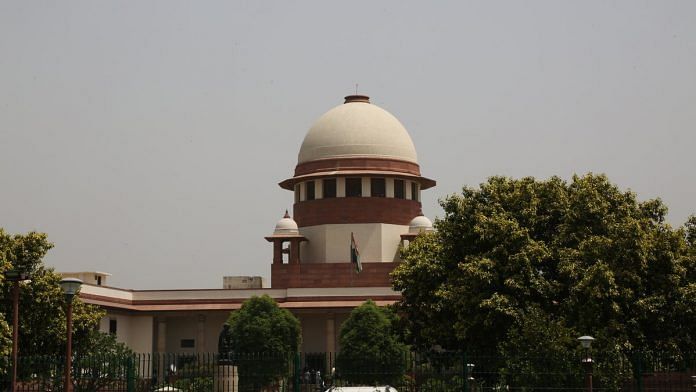New Delhi: The Supreme Court Wednesday asked the central government why there was a delay in enforcing its decision to waive compound interest on MSME and personal loans of up to Rs 2 crore for the six-month moratorium period that was announced in view of the Covid-19 pandemic.
The government had on 3 October agreed to waive compound interest for the moratorium period, which has been extended till 31 August. The court was hearing a batch of petitions seeking a review of the government’s loan moratorium policy.
“We welcome the government’s decision for the interests of the common people, only thing is, it should have been implemented at the earliest,” a bench led by Justice Ashok Bhushan told Solicitor General Tushar Mehta, who replied saying it will take a month to make the waiver scheme effective. He also sought time till 15 November to implement the policy.
The bench, however, asked him to come back with a definite date on 2 November, making it clear that the deadline Mehta suggested was not acceptable.
“When you have already decided to hand-hold small borrowers, why delay it. Their (small borrowers) Diwali is in the hands of the government,” the bench told Mehta.
According to the government’s affidavit on 3 October, compound interest will be waived off for the “most vulnerable class of borrowers” on MSME loans, education loans, housing loans, and personal loans, among others, for an amount of up to Rs 2 crore.
The affidavit also said waiving of all interests on borrowings for the moratorium period is neither agreeable nor practical, adding that such an exemption would burden the banks with an estimated amount of Rs 6 lakh-crore.
Also read: Rs 20 lakh cr can reboot economy, add jobs, tackle climate change. If there’s political will
‘Court is a bit harsh on government’
Appearing for an individual borrower, senior advocate Rajiv Dutta raised objections to the government’s 3 October affidavit in which it has said that the outer limit to implement its policy was 15 November.
Dutta argued against a long deadline, saying it gave banks more time to capitalise on existing loans. “We are small people with small loans (less than Rs 2 crore). They should not compound the interest in these cases.”
Appearing for the association of banks, senior advocate Harish Salve expressed helplessness and said the benefit can be extended to borrowers once the Reserve Bank of India (RBI) notifies its decision to waive compound interest in an affidavit before the court. “The numbers are large and it will be implemented,” Salve said.
“With a view to ensure there is no default and considering the assurance given, why won’t the government do it as early as possible? People are worried in terms of their accounts and for interest,” the bench told Mehta, while also reminding him that the court had adjourned hearing in the case whenever he has asked for it.
“We have always permitted the government to come back with directions but it is not in the interest of the common people to keep delaying once you have decided. Please see the plight of a common man,” it said.
This prompted Mehta to say, “This is a bit harsh on the government.”
‘Government has worked out modalities’
Mehta also explained that the government has formulated the scheme as well as its modalities under which the banks will have to waive compound interests.
On being told that banks cannot do the same without formal orders, Mehta said, “Banks will waive interest on interest (compound interest) and then will be compensated by the government and the calculation will have different modalities. We will have to ensure that the bank gives us a proper format.”
Salve assured that the scheme will be implemented and there were no two ways about it. However, the judges were not convinced when he said it was a complex issue and required time for application.
Mehta also said that the central bank needed some time to compute the liability, which is estimated to be around Rs 6,000 crore.
When told about similar relief extended to big corporates, the solicitor general opposed any such categorical reprieve for them, while also saying that a one-size-fit-all policy cannot be adopted for all borrowers.
He later informed the bench about the Kamath committee’s recommendations on industry-wise restriction of loans impacted due to the Covid-19 pandemic. The five-member Kamath committee was formed by the RBI under the chairmanship of former ICICI Bank Chief Executive Officer K.V. Kamath to make recommendations on the financial parameters to be considered in the restructuring of loans impacted by the pandemic.
Also read: Four steps Modi govt must take to revive India’s MSME sector post-lockdown



